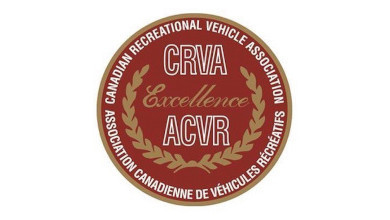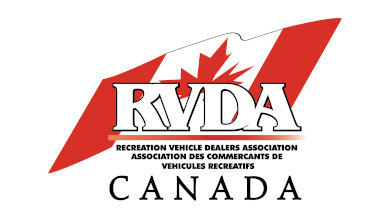CRVA Updates Members on This Week’s Scheduled RV Tariffs
The following letter was issued to members of the Canadian RV Association regarding this week’s tariffs, scheduled to take place April 2.
Dear CRVA Members,
We would like to take this time to give you an update regarding the tariffs and counter-tariffs currently planned for April 2 at 12:01 a.m. that will impact the RV industry on both sides of the border.
As you know, tariffs have already been imposed by President Trump’s administration on Canadian aluminum, steel and other products, and a new and broader round of tariffs is scheduled for tomorrow on all goods entering the United States, including from Canada.
As a result of this threat, the Government of Canada had previously announced it would implement retaliatory measures on approximately $125 billion on certain products imported into Canada from the United States at 25% to counter the tariffs on exported Canadian goods.
As of this morning, Canada is still including recreational vehicles imported into Canada from the United States in the next phase of these counter-tariffs.
See details and this link for reference.
On the Canadian Government’s website, United States Surtax Order (2025-1), it specifically outlines the surtax provisions that would take effect originally March 4, on certain goods originating in the U.S., including RVs.
The surtax is to be introduced by Canada in direct response to the U.S. imposition of tariffs on goods imported into the U.S. from Canada.
The administration and collection of the United States Surtax of 25% is the responsibility of the Canada Border Services Agency (CBSA).
Exceptions to Surtax
- The surtax will not apply to U.S. goods that are in transit to Canada on the day on which the surtax comes into force. This includes goods that were in transit before the surtax comes into force (Currently 12:01 April 2nd).
For the purpose of this Customs Notice, ‘in transit to Canada’ refers to goods bound for but not yet arrived in Canada, and under the control of a carrier. Importers must have proof in their possession that such goods were in transit to Canada in order to demonstrate that the surtax is not applicable. Such proof may include the following documentation: shipping documents (for example, a bill of lading), report of entry documents, and cargo control documents. Such proof may be requested at any time by a CBSA officer.
We note that there is no timeline indicated in the definition of “in transit” but we assume that common sense would apply based on the expected transportation time from the originating location of shipment to the Canadian border.
CARM Procedures & Financial Impact on Dealers
As part of the CBSA Assessment and Revenue Management (CARM), Canadian RV dealers will be required to pay the 25% countermeasure tariff at the time of importation, in the same way as they would pay a tax. The amount will be based on the value converted into Canadian dollars.
This process will be administered through what is called the CARM Client Portal, which is now the central system for managing all duties, tariffs, and tax payments on imported goods by Canadian businesses. (Currently HST/GST is paid by Canadian RV Dealers through this system)
While the wholesale cost of the RV would be financed under floorplan arrangements with their lender, this 25% tariff will most likely not be and would need to be paid out of the dealer’s cash flow, creating a significant financial burden to them.
The added cost could severely impact dealership operations, especially during peak inventory periods not to mention render the RV extremely difficult to sell for a profit should tariffs be eliminated.
Although there have been discussions with the Canadian Government on the issue, there have been no decisions made that would allow a Canadian business to get back the 25% tariff if/when the tariffs are removed.
CRVA and the RVDA of Canada have received indications that many dealers will choose to delay or cancel orders of U.S.-built RVs until the tariff is removed, creating economic and financial consequences for both Canadian and U.S. manufacturers and suppliers.
CRVA’s Position & Advocacy Efforts
The Canadian Recreational Vehicle Association has been actively engaging with the Canadian and United States governments to express our industry’s deep concerns over the inclusion of recreational vehicles in any tariff measures.
We have emphasized to both administrations that the RV industry is deeply integrated across North America, and that punitive trade measures will create unnecessary disruption to a sector that supports tens of thousands of jobs and contributes significantly to both economies.
CRVA’s message has been clear and consistent:
“Recreational vehicles and their components must be protected under free trade and remain exempt from any tariffs. Imposing such measures would have a severe financial impact on manufacturers, dealers, and consumers in both the United States and Canada, disrupting a highly integrated and interdependent industry.”
CRVA has been working in close coordination with the Recreational Vehicle Industry Association (RVIA), the RVDA of Canada and Indiana State RV manufacturers to advocate for a free and fair trade policy.
A key component of our communication with the U.S. Administration has focused on the significant trade imbalance in RVs between our countries:
Approximately 30,000-40,000 U.S.-made RVs are imported into Canada each year.
In contrast, only about 1,750- 2,000 Canadian-made RVs are exported to the U.S. annually.
We must continue to urge U.S. decision-makers to exclude Canadian-built RVs from any new tariffs, making the case that doing so would help us create leverage to convince the Canadian government to respond in kind by removing RVs from their retaliatory tariff list.
Next Steps
Like the RV Industry Association, CRVA’s membership includes businesses on both sides of the border — and with that comes a wide range of perspectives. Some Canadian-based members support the countermeasures to level the playing field, while many U.S.-based members are most concerned about how Canadian tariffs will impact their exports to Canadian retailers.
But make no mistake, no matter what side you are on geographically, we can all agree tariffs are not good for anyone in the RV industry, and CRVA would like to urge all members, stakeholders, and partners to continue to advocate for the removal of tariffs on RVs in both directions.
Our common goal is to preserve the strength, stability, and competitiveness of the North American RV Industry under the current Free Trade Agreement that we have all enjoyed for decades.
We will continue to provide updates as more information becomes available and encourage members to reach out with any questions or concerns.
Sincerely,
Shane Devenish, president
Canadian Recreational Vehicle Association



